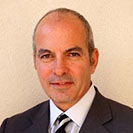Let’s face it, we’re rapidly approaching an era where artificial intelligence might handle your investment allocations better than you can, execute tax-loss harvesting before you finish typing your email password, and predict market fluctuations more accurately than your most overconfident CFA. But here’s the good news: robots still have no clue how to manage family dynamics or decode why Aunt Sally insists her porcelain cat collection should have its own trust.
In today’s hyper-digitalized world, AI can track every cent, optimize every portfolio and automate almost every routine financial task. But what it absolutely cannot do—and won’t do anytime soon—is grasp what money truly means to a family. You see, clients—especially affluent and mass-affluent families—are increasingly looking beyond financial projections and quarterly returns. They’re craving guidance that extends far beyond lifetime income streams; they want support in crafting meaningful legacies. They seek a human advisor who can weave their values, intentions and life lessons into financial plans that impact generations.
Here’s a sobering reality that might help you appreciate your job security: Over 70% of wealth transfers fail by the third generation, and surprisingly, it’s rarely due to terrible investments or volatile markets. The culprit? A failure in communication, cohesion and shared purpose within the family. In other words, the money was fine—it’s the people who caused the trouble.
Consider the irony: meticulous financial plans that neglect emotional continuity and familial values often crumble faster than a sandcastle built too close to the incoming tide. Too many advisors focus solely on immediate asset growth, assuming the numbers alone will guarantee future stability. Spoiler alert: They don’t.
When heirs are left in the dark about the “why” behind the wealth, confusion reigns. Sudden inheritances can turn into ticking time bombs of entitlement or resentment, causing family rifts that even the most adept attorney might struggle to resolve. When values and intentions are unclear, wealth quickly devolves from a blessing into a burden, often lost amid sibling disputes, misunderstood intentions and a complex array of trusts and charitable vehicles. No algorithm, no matter how smart, can manage these intensely human scenarios.
So what’s the solution? It’s simple: advisors must evolve from number crunchers to legacy architects. Your new role is to become a steward of the family’s multi-generational legacy, guiding conversations that technology simply can’t replicate. Imagine yourself not as a manager of assets but as a facilitator of family purpose and continuity. It’s a shift from transactional advisory to transformational partnership.
The practical path to becoming this legacy advisor is straightforward: initiate genuine, values-based conversations. Ask your clients not just what they want to have, but what they want their wealth to achieve. Create opportunities for families to develop clear, shared mission statements that reflect their collective priorities and aspirations.
Family meetings—once seen as awkward, annual obligations—should be reimagined as engaging, multi-generational dialogues. Use these gatherings as platforms for open discussion, education and joint decision-making. Offer structured financial literacy and mentoring programs, gradually preparing younger generations to handle inherited wealth thoughtfully rather than impulsively.
Philanthropic strategies should also take center stage. Whether through donor-advised funds or family foundations, charitable planning reinforces and manifests the family’s shared values in tangible ways. It teaches generosity and responsibility, making wealth a purposeful endeavor rather than a passive one.
Finally, encourage clients to document and share their personal stories, life lessons and philosophies. These narratives anchor financial decisions in meaning and emotional resonance, far beyond the scope of AI-generated portfolio recommendations. No spreadsheet ever sparked inspiration or lasting family unity, but stories and shared wisdom do precisely that.
In an age when AI forecasts portfolios with uncanny accuracy, your unique value lies in facilitating deeper, more meaningful conversations. Your ability to help families translate financial capital into human capital and an enduring legacy is your most significant competitive edge. The advisors who thrive in the next decade won’t be those who simply manage money—they will be those who help families shape wealth into something truly worth inheriting.
Here’s the ultimate insight: legacy isn’t just what your clients leave behind; it’s what they consciously set in motion. So go ahead—embrace your humanity, ask the more profound questions, and build something no robot can replicate.


















